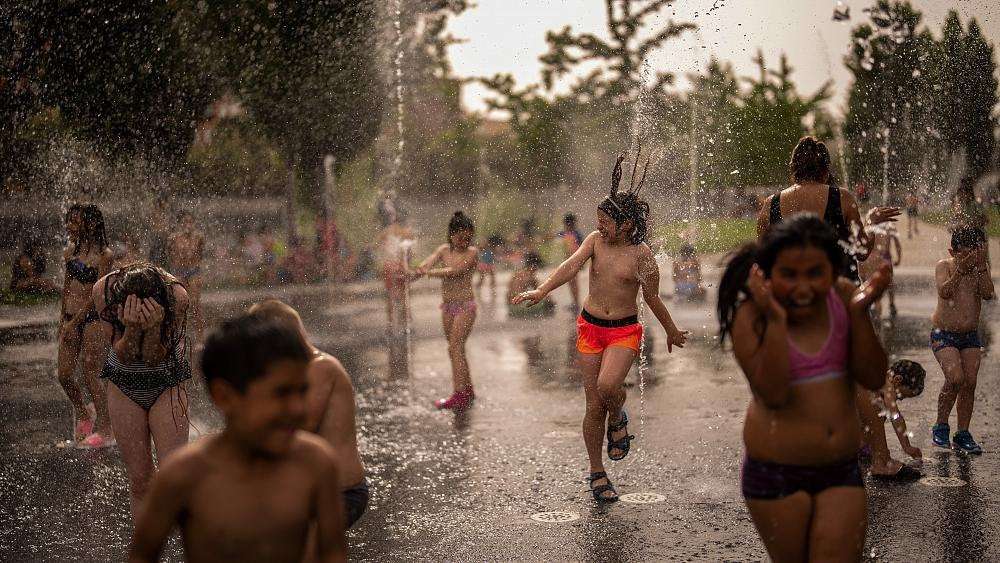An intense and unprecedently early heatwave is baking western Europe, with temperatures in many places topping 40 degrees Celsius Saturday.
Temperatures were high across most of Western Europe on the first day of the weekend. France and the Iberian Peninsula have been hit particularly hard.
In southwest France, there were peaks of close to 42 to 43 degrees Celsius, as the city of Biarritz broke an "absolute" temperature record.
Nearly three-quarters of the country's population -- some 45 million people -- were issued with red or orange heat alerts in what is the earliest heatwave ever recorded in France.
For some in Paris, especially those living in cramped, old apartments, the scorching heat was too much to bear.
Christian Thurillat, 70, told Euronews he was struggling to cope and largely unable to sleep.
"I get up, I go to the bathroom, I come back, I drink a glass of water, then I sit down, I watch TV, that's it. Until 2 am in the morning," he said.
Many regions of France also experienced high levels of toxic ozone concentrations due to Saturday's heat wave, according to the country's official Prev'Air bulletin.
Ozone -- a so-called "secondary" pollutant -- is created when pollutants released by road traffic and industrial compounds such as solvents and hydrocarbons react with the sunlight.
The resulting gas causes increased wheezing, coughing and chest tightness. Children playing outdoors are particularly susceptible.
Areas across western and southern Europe are already rationing water amid the sweltering heat, with a very dry spring putting immense stress on water systems.
Scientists have said the multiplication of heatwaves in Europe is a direct consequence of global warming, with the World Meteorological Organisation warning this is only a "foretaste of the future".
Greenhouse gas emissions from human activity are increasing the strength, duration and rate of repetition of heat waves across the world.
Faced with this exceptional situation, festive, sporting, and cultural events were cancelled in France.
Occasional thunderstorms were expected on the Atlantic French coast starting Saturday evening, meaning the heatwave may gradually decrease, especially in the worst affected areas in the southwest.
In Spain, firefighters continued to fight several fires across the country, which have broken out due to the dryness.
The most devastating fire forced authorities to evacuate 14 villages, regrouping several hundred inhabitants in the Sierra de la Culebra, a mountain range in the region of Castilla y León near the border with Portugal.
According to regional authorities, some of them were able to return to their homes Saturday morning as the flames had moved away from their homes.
Nearly 20,000 hectares of land have been burned by the giant fires sweeping through Spain.
In northern Italy, several towns have announced water rationing and the northern Lombardy region has hinted at declaring a state of emergency as a record drought threatens harvests.
“As a result of climate change, heatwaves are starting earlier,” said Clare Nullis, a spokeswoman for the World Meteorological Organisation in Geneva.
“What we’re witnessing today is unfortunately a foretaste of the future," she added.
Temperatures in London stayed well below 20, with rain and cloud hitting the British capital.

Infamous-Salad-2223 on June 19th, 2022 at 12:12 UTC »
My room is around 30°C during all day but it gets worse if humidity increases.
Today there is a bit of breeze tho.
NikoStrelkov on June 19th, 2022 at 12:12 UTC »
Ireland: best i can do is +18C.
Thrusthamster on June 19th, 2022 at 12:04 UTC »
Seems like the heatwaves come every year now?